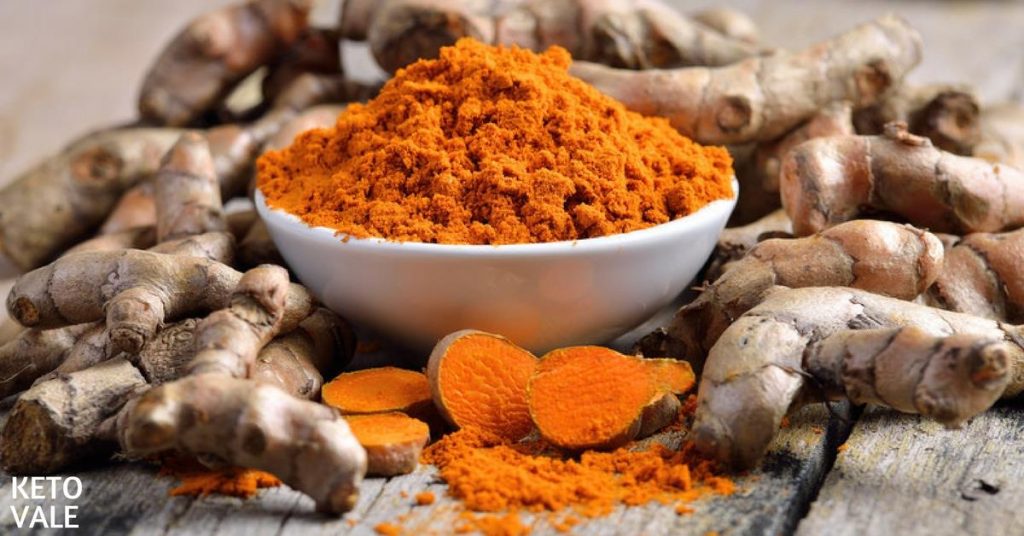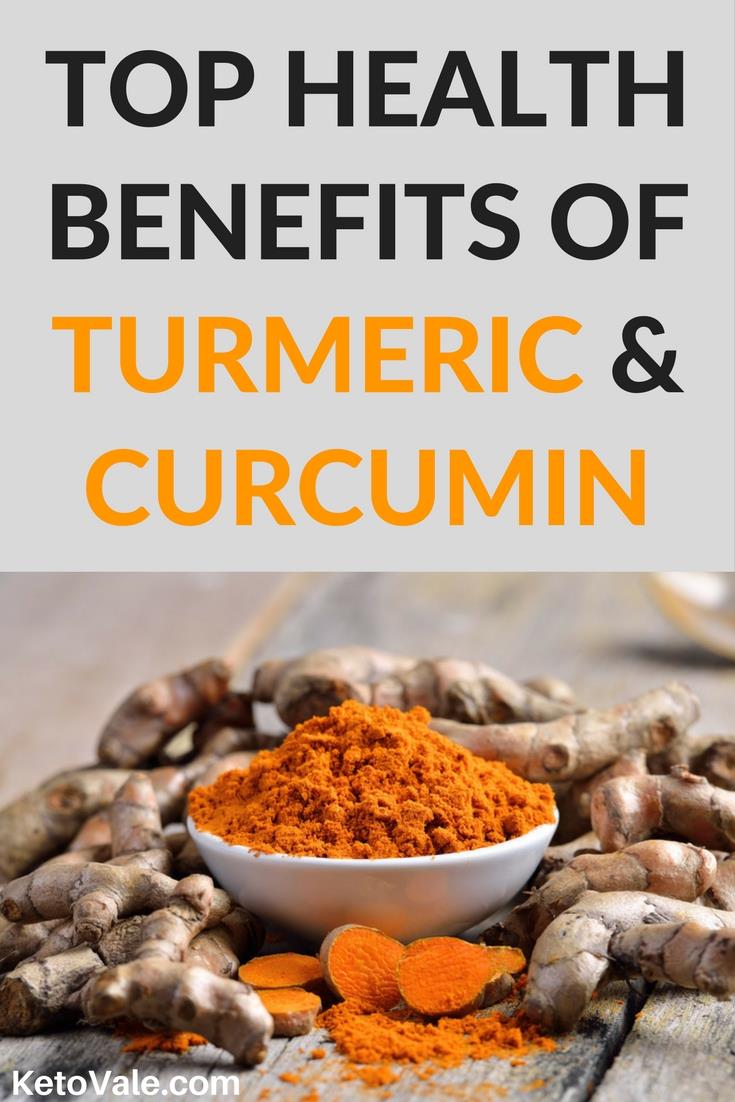For most of us, our modern diets simply can not fulfill all our physiological needs and extra metabolic and mental demands. From vitamins to minerals, and even macronutrients, it’s very common that most of us don’t meet our daily required dietary needs.
The need to remain not only healthy, but also as alert as possible, has opened up the doors to a new market: the dietary supplements market.
With so many new products and herbs being “discovered” monthly, it becomes virtually impossible to keep up with this new information and, as a result, add all these new “miraculous” supplements to our diet.
In an attempt to solve this problem, we have decided to focus this article on the latest “supplement craze”, turmeric and curcumin, and find out if there’s enough research to back up the claims made about these two herbs.
On top of that, we will also go through a list of scientifically proven benefits for this plant, as well as some easy tips and ways how you can include it in your diet.
What is Turmeric?

When not used fresh, the turmeric is boiled for about 30 minutes and later dried. Afterwards, the product is ground and a yellow/orange powder is produced.
This powder is commonly used as a coloring and flavoring agent in many Asian cuisines, especially for curries.
Turmeric powder has a warm, bitter, pepper-like flavor and earthy, mustard-like aroma, which you may be familiar with if you enjoy Asian cuisine.
After some research, it becomes clearly apparent that turmeric can not be categorized as a recent “supplement craze” since the plant has a very long history of medicinal use, dating back nearly 4000 years (1).
Modern medicine has only just begun to recognize turmeric’s importance, as indicated by the over 3000 publications dealing with turmeric that have come out within the last 25 years.
There are several chemical compounds found in turmeric, known as curcuminoids, and the active substance found in turmeric is called curcumin.
What is Curcumin?
Curcumin, previously mentioned in connection with turmeric, is a bright yellow chemical produced by some plants. Although it’s most commonly sold as an herbal supplement, it is also frequently used as a cosmetic ingredient, food flavoring, and as food coloring.
As previously mentioned, the active ingredient in Turmeric is curcumin. However, the curcumin content of turmeric is not that high, being only about 3,14%, by weight (2).
It is also relevant to mention that most of the studies conducted on turmeric and curcumin are carried out on turmeric extracts that contain mostly curcumin, with dosages administered usually exceeding 1 gram per day.
Just by doing the math, it becomes apparent that it would be very difficult to reach these levels just using the turmeric spice in your foods.
Therefore, if you want to experience the full effects of curcumin, it is advised to use an extract containing high amounts of curcumin, rather than simply ingesting huge amounts of turmeric… and probably tastier too.
Although curcumin is poorly absorbed into the bloodstream, it has been found that its absorption is increased by 2000% when consumed with black pepper. Why? Black pepper contains a natural substance called piperine that drastically increases the absorption of curcumin (3).
It is also helpful to know that curcumin is fat soluble, meaning it is more easily absorbed when it’s put in a fatty environment. Therefore, it is an excellent idea to take it with a fatty meal, such as a traditional curry.
So, without any further ado, here are the amazing health benefits of curcumin.
Feel free to save this article by pinning this picture to read later!
Top Health Benefits of Turmeric and Curcumin
#1. Curcumin is a Natural Anti-Inflammatory Compound
Inflammation is an incredibly important process in our body. Through the inflammatory process, our body can fight foreign harmful invaders, thus preventing us from getting easily sick.
Although this process is incredibly vital in some occasions, mostly acting against short-term invaders, dangerous consequences can arise when the inflammatory process is constantly activated, that is, in long-term situations.
This long-term activation of inflammation, also known as chronic, plays a major role in several diseases, including heart disease, cancer, Alzheimer’s disease, and several other degenerative conditions.
Therefore, anything that can help fight chronic inflammation is of incredible importance in preventing and even treating these diseases.
Curcumin is strongly anti-inflammatory, targeting multiple steps in the inflammatory pathway at the molecular level, having been proved that as powerful as some anti-inflammatory drugs (4).
More specifically, curcumin blocks NF-kB, nuclear factor kappa, a molecule that travels into the nuclei of cells and activates genes related to inflammation. NF-kB is believed to play a major role in many chronic diseases (5, 6, 7).
The journal “Oncogene” published the results of a study that evaluated several anti-inflammatory compounds and found that aspirin and ibuprofen, some of the most commonly used anti-inflammatory drugs are least effective than curcumin (8).
Although curcumin‘s potency has compared favorably to anti-inflammatory pharmaceutical drugs, the major benefit of the plant resides within the fact that, unlike most anti-inflammatory drugs, the risk of adverse effects is practically null.
#2. Turmeric Drastically Increases The Antioxidant Capacity of The Body
Oxidative damage is believed to be one of the main mechanisms behind aging and many diseases. Free radicals, highly reactive molecules with unpaired electrons, tend to react with important organic substances, such as fatty acids, proteins or DNA, leading to their damage.
While our bodies are equipped to deal with low-doses of damage, over the years, the accumulation of oxidative damage can lead to serious diseases.
The main reason antioxidants are so beneficial, is that they protect our bodies from free radicals, thus preventing the damage of fatty acids, proteins, and DNA.
It has been found that curcumin is a potent antioxidant that can neutralize free radicals due to its chemical structure (9).
On top of this neutralizing action, curcumin also boosts the activity of the body’s own antioxidant enzymes (10, 11).
This dual anti-oxidative action is an excellent way to boost our body’s‘ antioxidative mechanism, thus granting us higher protection from several diseases, while simultaneously slowing down aging.
#3. Turmeric Can Help Prevent Cancer
Cancer is a disease characterized by the uncontrolled division and growth of cells. Although there are many different forms of cancer, they do have several common features, some of which appear to be affected by curcumin supplementation (12).
Researchers found that curcumin can affect cancer growth, development and spread at the molecular level (13).
Another big property of cancer is that it can create its own blood supply. Through a process known as angiogenesis, tumor cells can create new blood vessels, thus creating its own “feeding system”.
Studies have shown that it can reduce angiogenesis, metastasis (the spread of cancer), as well as contribute to the death of cancerous cells (14).
Multiple studies have shown that curcumin can reduce the growth of cancerous cells in the laboratory and inhibit the growth of tumors in test animals (15).
In one study in 44 men with lesions in the colon, which can sometimes turn cancerous, 4 grams of curcumin per day for 30 days reduced the number of lesions by 40% (16).
Another study published in July 2017 by researchers at Baylor Scott & White Research Institute found that curcumin may even be able to break through chemoresistance in pancreatic ductal adenocarcinoma (PDAC), an aggressive form of pancreatic cancer (17).
Another common problem faced during chemotherapy is resistance, that is, patients initially responding to chemotherapeutic drugs and then later developing resistance. Curcumin appears to re-sensitize these patients’ cancer cells to the drugs, although the exact mechanisms of curcumin’s chemo-sensitization remain ambiguous (18).
#4. Curcumin Leads to a Lower Risk of Heart Disease
Heart disease is the biggest killer in the world. Although there are numerous factors contributing to the development of heart disease, it was found that curcumin may help reverse many steps in the heart disease process.
The main benefit of curcumin when it comes to heart disease is improving the function of the endothelium, which is the lining of the blood vessels.
It is well known that endothelial dysfunction is a major driver of heart disease and involves an inability of the endothelium to regulate blood pressure, blood clotting and various other factors.
Several studies suggest that curcumin leads to improvements in endothelial function. One study shows that is as effective as exercise, another shows that it works as well as the drug Atorvastatin, one of the most commonly used drugs (19, 20).
Also, a big component of heart disease is inflammation and oxidation which, as discussed in this article, can also be fought by the use of curcumin.
Another study studied 121 patients who were undergoing coronary artery bypass surgery. The participants were randomized to either placebo or 4 grams of curcumin per day, a few days before and after the surgery. The curcumin group had a 65% decreased risk of experiencing a heart attack in the hospital (21).
Another major cause of heart disease resides within excessive coagulation, which can lead to serious problems such as deep-vein thrombosis and pulmonary embolisms.
Ever since several groundbreaking studies in the 1980s, the curcumin in turmeric has been suggested by researchers as being a better option for those with vascular thrombosis (blood clots in the veins), when compared with commonly prescribed prescription drugs such as Aspirin, Warfarin, Diclofenac, and Ibuprofen (22).
#5. Curcumin Improves Brain Function and Decreases the Risk of Brain Diseases
Although early studies claimed that neurons weren’t able to divide and multiply after early childhood, it is now known that neurons can not only form new connections, they also have the ability to multiply in certain areas of the brain.
One of the main drivers of this process is Brain-Derived Neurotrophic Factor (BDNF), which is a type of growth hormone that functions in the brain (23).
Many common brain disorders have been linked to decreased levels of this hormone, including depression and Alzheimer’s disease.
Interestingly, curcumin can increase brain levels of BDNF (24, 25).
By this mechanism, it may be effective at delaying or even reversing many brain diseases and age-related decreases in brain function.
Although not yet tested in human controlled trials, it has also been proven that curcumin can help improve memory and intelligence in laboratory animals (26).
The journal “Phytotherapy Research” published the results of an innovative study, which took 60 volunteers diagnosed with major depressive disorder (MDD), such as manic depression (bipolar disorder), and split the group to determine how patients treated with curcumin fared against fluoxetine (Prozac) and a combination of the two (27).
Not only was it discovered that all patients tolerated curcumin well, it was also discovered that curcumin was as effective as Prozac in managing depression. According to the authors, “This study provides first clinical evidence that curcumin may be used as an effective and safe therapy for treatment in patients with mild depression.”
#6. Curcumin Supplementation in the management of Arthritis
Arthritis is a common problem in Western countries, and although there are several different types of arthritis, most of them involve inflammation of the joints.
As previously mentioned, curcumin is a potent anti-inflammatory, so it makes sense that it could help with arthritis. This theory interested researchers who have managed to prove that curcumin can be a powerful aid in arthritis management.
In a study of 45 patients with rheumatoid arthritis, curcumin was even more effective than an anti-inflammatory drug Diclofenac sodium (28).
The study split these volunteers into three groups: curcumin treatment alone, Diclofenac sodium alone, and a combination of the two. The curcumin group showed the highest percentage of improvement in overall [Disease Activity Score] scores and these scores were significantly better than the patients in the Diclofenac sodium group. More importantly, curcumin treatment was found to be safe and did not relate to any adverse events.
Many other studies have looked at the effects of curcumin on arthritis and noted improvements in various symptoms (29, 30).
#7. Diabetes management
Although there is plenty of research regarding the benefits of several supplements in the management of diabetes, turmeric, and curcumin supplementation are gaining a lot of traction when it comes to the management of this disease.
In 2009, Biochemistry and Biophysical Research Communications published a study from Auburn University that explored how supplementing with turmeric can help reverse diabetes (31).
The study discovered that curcumin in turmeric is 400 times more potent than Metformin (a common diabetes drug) in activating AMPK which improves insulin sensitivity, thus helping reverse Type 2 Diabetes.
Curcumin has also been proven to help reverse many of the issues related to insulin resistance and hyperglycemia.
One of the most common complications of diabetes is damaged blood vessels, which cause blindness, an aftermath of diabetic neuropathy and retinopathy.
A study found that, due to its anti-inflammatory and antioxidant properties, supplementing with curcumin can delay this complication of diabetes (32).
#8. Cholesterol Regulator Without The Side Effects
Hypertension and heart disease are one of the top causes of death within Western countries.
After the damage of blood vessels through oxidative stress, cholesterol begins to build up to patch up the damaged areas, which leads to high levels of LDL cholesterol.
Traditionally, drugs used to fight this excessive amount of cholesterol, are known for its dangerous adverse effects. Statin drugs are widely known to harm the kidneys and liver and cause a number of deadly side effects.
Although they lead to a lowering of cholesterol, they never address the actual cause, which is oxidative stress that is caused by high blood sugar levels and inflammation.
Thankfully, medical doctors are becoming more and more aware of the dangerous side effects of statin drugs and prescribing natural alternatives like curcumin and fish oil instead.
A study done by “Drugs in R & D” found that curcumin was equal to, or more effective than, diabetes medications at reducing oxidative stress and inflammation in the treatment of high cholesterol (33).
#9. Painkiller
One of the more widely accepted properties of curcumin in scientific communities is its ability to manage pain.
The European Journal of Pharmacology published a research that discovered curcumin naturally activates the opioid system (pain decreasing natural process) in diabetic rats.
Not being limited to diabetic pain conditions, an interesting study also gives us a clue as to the wide array of pain conditions that can be treated with curcumin.
Take, for instance, severe burns. Typically, burn victims are treated with dangerous opioids and nonsteroidal anti-inflammatories. However, because of its anti-inflammatory benefits, U.S. Army Institute of Surgical Research suggests that curcumin should be used to treat burns instead of these conventional medications (34).
The therapeutic use of turmeric and other curcumin-rich plants are displacing conventional medical treatments and proving it’s a legitimate natural painkiller.
Top Uses and How To Add Turmeric to Your Diet
Now that we have discussed some of the top benefits of turmeric and curcumin, let’s discuss some ways how to add it to your diet, especially the ketogenic diet!
One of the easiest and most delicious ways to take full advantage of turmeric is to prepare turmeric drinks such as tea or coffee. Also, an excellent way to bring new flavor and life to your food is to start seasoning your food with turmeric such as this zucchini tortillas recipe, and especially eggs or even soups!
According to a study published in Planta Medica, taking turmeric in combination with black pepper, which contains piperine, improves turmeric absorbability throughout the entire body. They added 20mg of piperine to 2,000mg turmeric, and it increased the bioavailability of turmeric 154 percent! So don’t hesitate to add black pepper to your turmeric-containing dishes (35)!
As mentioned in the beginning of the article, a great way to consume curcumin is through supplements. Although there’s a wide range of products available, make sure to do some research before buying a specific supplement.
Due to its anti-inflammatory and antioxidant properties, turmeric has been proven effective in treating skin conditions.
Turmeric benefits for skin include speeding up wound healing; decrease acne and acne scarring by calming the pores and controlling psoriasis flares.
The benefits of turmeric and curcumin are scientifically proven and you should use it regularly in your diet to achieve the best results for your health.








